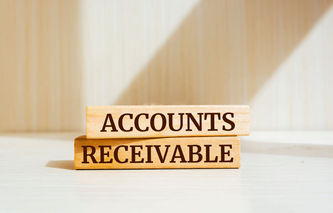Definition
The term accounts receivable valuation describes the methods used to determine the value of accounts receivable appearing on the company's balance sheet. Typical adjustments to accounts receivable can include discounts, sales returns, and uncollectable accounts.
Explanation
Not all sales will result in money collected from customers. The matching principle requires companies to align revenues, an income statement item, with receivables, which appears on the balance sheet. When initially valuing accounts receivable, the company needs to consider discounts offered to customers and trade partners.
Cash Discounts: a deduction offered by sellers to buyers of goods and services if payment is made within a certain timeframe.
Trade Discounts: the amount by which the list price of an item is reduced when selling to a business that will resell the item.
If a credit sale involves a trade discount, the amount booked to accounts receivable is the net billed the trade partner. Recording of cash discounts can be accomplished using one of the below approaches:
Gross Method: the sale is recorded at its gross value appearing on the invoice, before the discount offered.
Net Method: the sale is recorded at the net amount, assuming the customer will take full advantage of the cash discount offered.
The next step in the valuation of accounts receivable involves adjustments for sales returns and uncollectable amounts.
Sales Returns and Allowances: the expected refunds or credits issued to customers associated with sales in the current accounting period.
Uncollectible Accounts: when sales are made on credit, companies will not always receive payment in-full. For this reason, accounts receivable needs to be reported as the amount the company expects to be paid by customers.
Sales returns and uncollectibles are known as special allowance accounts, which are contra accounts to accounts receivable. Once these two adjustments have been completed, accounts receivable will appear on the balance sheet in a form known as net realizable value.









.jpg)

